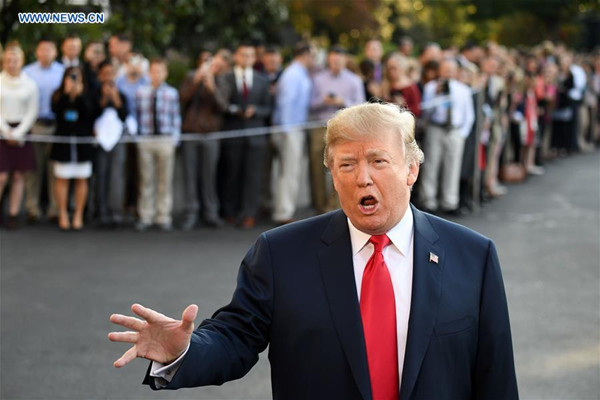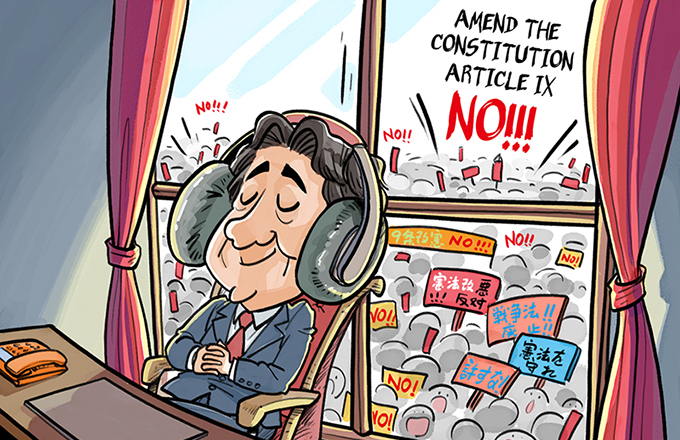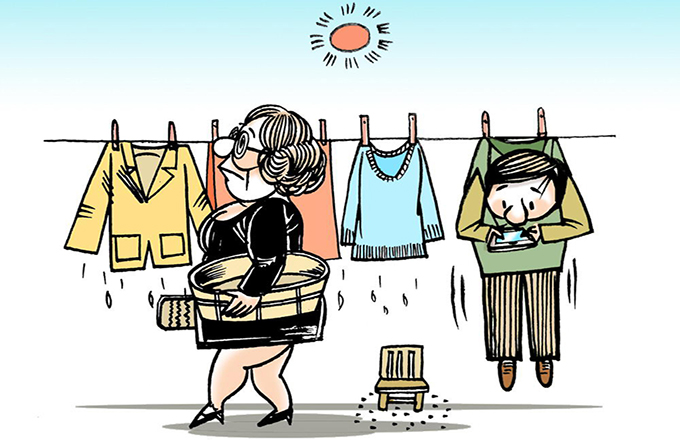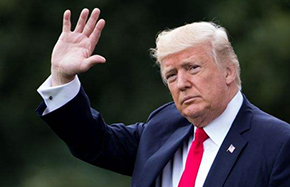Cooperation would benefit US more than blame game
 |
|
US President Donald Trump speaks to the media before boarding Marine One departing the White House for Joint Base Andrews, in Washington DC, the United States, on Nov 3, 2017. [Photo/Xinhua] |
Trump is expected to play the same card when he visits Beijing after his stop in South Korea this week, as he called the United States' trade deficit with China "embarrassing" and "horrible" ahead of his trip.
His criticism of the country's major trade partners in Asia may win him support back home from those who believe his claim that unfair trade practices have stripped jobs and wealth from the US-"decade after decade, trade deficit upon trade deficit", as he said in March.
But his argument that the US is a loser in global trade simply because of the massive trade deficits it has incurred each year is misleading and fails to reflect the real benefits the country has gained from the existing global trade and economic regime.
In past decades, due to rising labor and environmental costs at home, the US moved much of its manufacturing production capacity overseas, retaining mainly its high-tech industries. It then imported low-priced manufacturing goods from other countries, which helped drive down its domestic inflation and benefited those US multinationals making the goods abroad, creating a windfall for US investors and consumers.
The US president habitually attributes the country's manufacturing job losses to "unfair trade". But according to the US' own data, its jobless rate dropped from 9.6 percent in 2010 to 4.9 percent in 2016, while its trade of goods deficit surged from less than $700 billion to $796.7 billion over the same period, indicating that a rise in its trade deficit is not accompanied by a loss of jobs.
Whether a country registers a trade surplus or deficit is largely decided by its role in the global division of labor and its development stage.
Trump's lambasting of the US' trade partners and his vows that under his administration the theft of American prosperity will end play well with the crowd-they carried him on a wave of popular sentiment into the White House after all-and no doubt they will serve to distract attention from his troubles at home, but they do nothing to help revitalize the US economy, unless he can gain a few favors from other leaders, or boost the global economy.
Instead of criticizing his hosts, Trump should seek to promote cooperation to advance "free and reciprocal" trade to the benefit of both the region and the world.

























